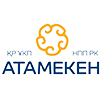During the regular technical lecture, the Society of petroleum engineers discussed the prospects of digitization in the oil field. The main speech was presented by Mr. Alikhan Baidussenov, expert of CSI Group, who is known for introducing digital fields at EmbaMunaiGas JSC. According to him, innovations at EmbaMunaiGas were aimed at extending the life of the fields that are under the last stage of operation, as well as at collecting data in order to better understand and forecast the processes in the future.
Mr. Alikhan Baidussenov received a variety of answers to the question “What is Digital oil field in the opinion of petroleum engineers”:
- The opportunity to optimize business processes, remote control and forecasting;
- to get a huge amount of data, and to provide more efficient management of all processes, anticipate future breakdowns and find the best solutions by processing such data;
- Digital oil field helps to minimize human faults;
- Digital oil field helps to save money and reduce the costs, including the costs for specialists;
- There are several digitization levels. The simplest level – is the usual replacement of paper data with digital data, and the top level – is the use of artificial intelligence and the field operation without human engagement.
- Our colleagues in Kuwait believe that digital oil field allows to quickly react to breakdowns and save lives rather than just increase production.
The speaker concluded that digital oil field is some kind of a single space, where all employees work with uniform data. Surprisingly, this is the biggest problem in Kazakhstan, since no one knows where the one truth is. Four different Field Offices in one enterprise may have their own accounting systems and completely different data. Therefore, it is impossible to ensure the multidisciplinary collaboration of different specialists to solve a problem.
The speaker identified four key areas of “digital oil field” that need to be actively developed:
- High security level. Long-term operation of equipment;
- Increased oil recovery index or reduced oil shortage. Lower operating expenses;
- Remote control. Improving the efficiency of cross-boundary collaboration;
- Integration of big data and expertise.

